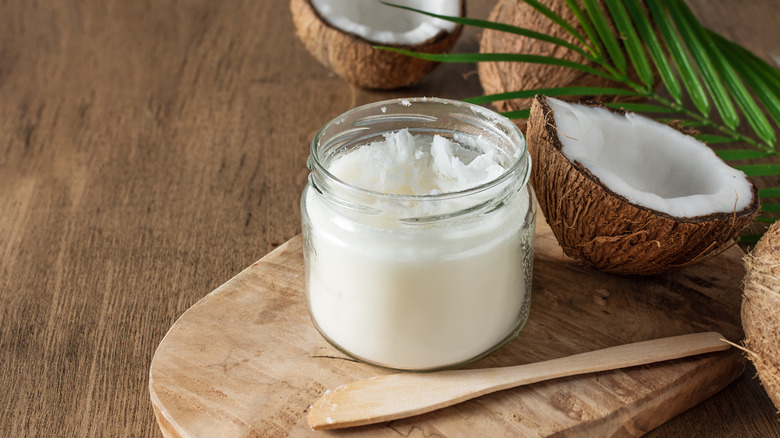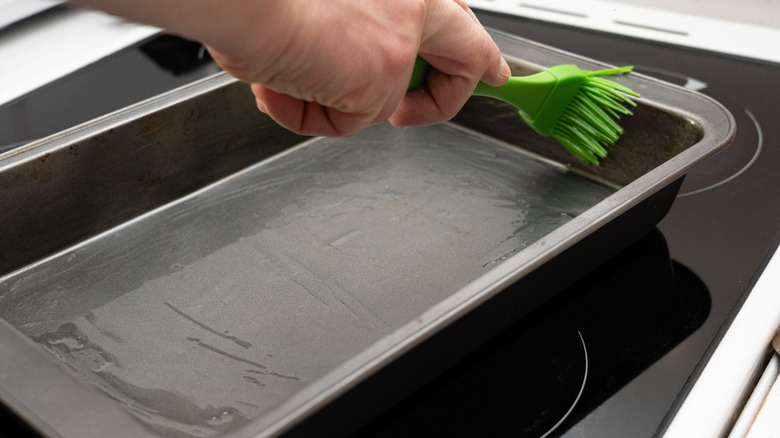Can You Use Coconut Oil To Grease Baking Pans?
Coconut oil is one of those ingredients that garners a lot of questions, like what exactly it is. Extracted from the white, meaty interior of the coconut, it is differentiated from coconut butter because it does not actually contain the flesh itself. Instead, the oil is pressed out and separated (via Bon Appétit). Unlike other cooking oils, it is solid at room temperature, which means it can be spread and cut up similar to dairy butter, but as The Spruce Eats states, its low melting point means that coconut oil can also be used in place of vegetable oil for things like stir-frys.
Its increasing ubiquity on grocery store shelves and high versatility means coconut oil is great to have on hand for baking, especially as a vegan substitute. The Kitchn notes that coconut oil can be directly subbed out for other fats at the same proportion so that creamed butter is no longer standing between you and a plate of freshly-baked cookies. And if you are already baking with it, why not use coconut oil to grease those pans?
Coconut oil is a good choice for greasing pans
One of coconut oil's strengths as a cooking fat is its high smoke point. That means it can stand up to higher oven temperatures without burning, making it great for greasing your baking pans in any recipe, vegan or not (via The Kitchn). Just melt it and brush it on in place of any other oil you might use with no complications or worries.
Just make sure you are using refined coconut oil over unrefined, as the high heat processing removes impurities and gives it that higher smoke point. Refined coconut oil also has a more neutral flavor that won't change the taste of your recipes very much when using it as a substitute. However, the intensity of coconut flavor does vary over brands (per Serious Eats). Coconut oil's variety of styles and flavor intensity means you can use it however you want to, as long as you find the brand that fits your preferences.

